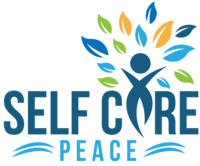Do affirmations feel awkward to you? They do feel a little awkward until you get used to them, don’t they!? Especially first thing in the morning before your mind has woken up properly.
Affirmations have been around for years, and they’ve mostly been a part of the self-help movement. Names like Louise Hay immediately come to mind.
But they’re no longer the exclusive purvey of new-age thinkers and the self-help movement. These puppies have gone mainstream. Clinical psychologists and psychiatrists use them as therapy tools, academics are studying them, and business leaders and politicians are using them every day.
The ugly duckling has transformed into a beautiful swan if you’ll excuse the cripple little analogy.
But why is that?
What are positive affirmations?
Defining positive affirmations is as easy as it is to do them. They’re simply statements or phrases you use to challenge and shift unhelpful, negative thoughts.
And practicing them is a simple as eating apple pie. Pick a phrase, memorize it, and repeat it to yourself as often as you can. Wash, rinse, repeat.
Any area of your life you could possibly want to improve can benefit from affirmations. If your self-talk is negative, affirm it into something positive. If your self-esteem is low, give it a boost with positive affirmations. If you’re anxious all the time, use affirmations to get you into a better frame of mind.
The possibilities are endless.
What is the science behind positive affirmations?

Steele’s Self-Affirmation Theory – which dates back to 1988, was key to showing that we can maintain our integrity while telling ourselves we’re great. Of course, that’s in a small nutshell.
And if you’re wondering what self-integrity is – it’s our ability to respond in a flexible way when we feel that our concept of ourselves, or our self-image, is threatened. It’s really your whole belief system that clusters around the way you see and experience yourself.
After Steele broke the ice in 1988, a great many other empirical studies have been done on the ability of affirmations to make a positive impact on the individual’s experience of life. Without exception, the results have all been great!
So, the long and the short of it is – positive affirmations work. We’ve known that for a long time, but the scientists have finally caught up.
A closer look at the research
Once the scientists found out affirmations work as well as they do, the logical next step was to have a look at what happens inside the brain when we use them. And this is where things become fascinating.
Neural pathways are the microscopic highways in your brain that transport the chemical messages between your thoughts and emotions.
They’re interesting little blighters, because the more we use them, the stronger and more prominent they become stronger with every repetition. And soon it slips from being a repeated phrase, into a core belief.
The power of this to transform lives is immense.
What are the benefits of positive affirmations?
We’re going to stay with the scientists for a moment. Their studies have empirically determined that:
- Positive affirmations decrease stress
- Improves behavior
- Decreases our anxiety
- Improves our habits – eating healthy is a great example
- Improves academic performance
- Improves our general health
What about our outlook on life?

When our sense of self is a little under the weather, and our self-esteem feels a little rained on, we’re less able to respond well to the challenges life throws in our direction. We have a natural, perfectly human tendency to linger on negative experiences and the negative thoughts and emotions they spark.
Positive self-affirmations, especially first thing in the morning, counteract this tendency and increases positive thoughts, emotions, and even experiences throughout the day.
We become more adaptive, more hopeful, and more certain of what we can accomplish.
And all that by doing nothing more than saying a few sentences first thing in the morning!
Daily affirmations in the morning
There can never be an unbendable rule about the best way to practice affirmations.
However, repetition is important. And the daily dose psychotherapists prescribe is three to five times a day.
The one thing they all say, though, is to do your first affirmation first thing in the morning. That is before the thoughts about the day ahead have had a chance to clutter your inner world.
Can they help with depression and anxiety?
These two nasty blood brothers affect more of us than we’ll ever know. And so many of us who are burdened with them, try with all our might to hide them from the rest of the world.
We suffer in silence.
Affirmations can DEFINITELY make a difference. And they do. Many depression sufferers say their morning affirmations make their days bearable, And people with anxiety report that the frequency of their attacks diminished rapidly once they started with affirmations.
And how about self-esteem?
This is where these babies really begin to shine. They work wonders for people with low self-esteem.
Important to remember, all of us have higher and lower days on the self-esteem front. There are days when we feel absolutely invincible on the one end of the spectrum, and then there are days when we just believe the worst of ourselves and think we’re unable to do anything right.
This is normal. When the negative self-esteem becomes prominent, even overwhelming, and when it is no longer balanced by the good self-esteem days, it becomes a problem that affects every aspect of our lives.
Affirmations are great when you’re climbing out of the pit of low self-esteem, and also to maintain healthy self-esteem, even on the good days.
Do affirmations help people sleep better?
Once you start touching on self-esteem, and depression, and anxiety, you inevitably end up in the realm of sleep disturbances. Simply because these all go hand in hand.
And yes, positive affirmations REALLY help with sleeping patterns. They do this because they have a generally calming effect on the mind. Those thought patterns that mill and swirl when you try to fall asleep, are diluted and eventually dissolve altogether when you use positive affirmations in the mornings, and then a couple of times throughout the day.
Why are affirmations first thing in the morning important?

It’s all about the blank-slate principle. When you wake up in the morning you may still have a little dream residue in your psyche, but for the rest, it’s pretty much empty.
Your thoughts and feelings don’t suddenly fill your mind with a huge THUMP! They trickle in gradually over around 30 minutes.
This makes early mornings when you’ve just woken up, the IDEAL time to set the tone for your mind and psyche.
How do I choose my affirmations?
Every person is different. We lead different lives, and we deal with different issues. There can never be a one-size-fits-all with affirmations. The key is to keep them positive and to focus on areas of your life you’d like to improve.
Here are a few examples. Use them as they are if you want, or adjust and hone them to fit you and your life. It doesn’t matter.
- If I change my mind it is from strength, not weakness
- My decisions are supported by my entire experience
- I am good to myself as I am good to others
- I am the only one who knows my own truth
- I deserve to have what I want
- I always have everything I need
- I am always entitled to feeling good
- Ease and effort are always perfectly balanced in my life
- I am always complete and whole just as I am
- I am free of physical pain
- I am free of emotional pain
- I am already good and I am getting better all the time
- I am growing every day
- I am always in charge of how I feel
- Today I choose to be happy
- I am worthy
- I am loved
- My circumstances don’t determine who I am
- This new day makes me optimistic
- I am at peace
- I am always responsible for myself
- My perspective is important
- I am understood
- I am always valued
- I am well-rested
- When I breathe in, I inhale trust. When I breathe out, I exhale doubt
- My heart is soft and my boundaries are firm
- I alone control how I respond to confrontation
- I celebrate my good qualities
- I deserve my own self-respect
- I get to do all the things I love
- I’m always moving from darkness into light
- I never have to pretend I’m someone I’m not
- I am quick when I need to be, and still when I want to be
- I embrace change
- I love questions and welcome answers
- I grow and reach towards the things that interest me
- I have everything I need for success
- My wisdom is beyond knowledge
- My heart is always inviting abundance
- I love being spontaneous
- I find it easy to let go of that which doesn’t serve me
- I look forward to today
These will get you started on the path of affirmations, and if you’re already practicing, they may just fill a few gaps in your arsenal.
And inspiring story
The story of Heather Mathews is bound to inspire you today. She’s traveled one of those incredible journeys life sometimes places us on. And the result has been a completely different life to the one she was used to – a life where she can be the best version of herself every day.
You can find her story here:

